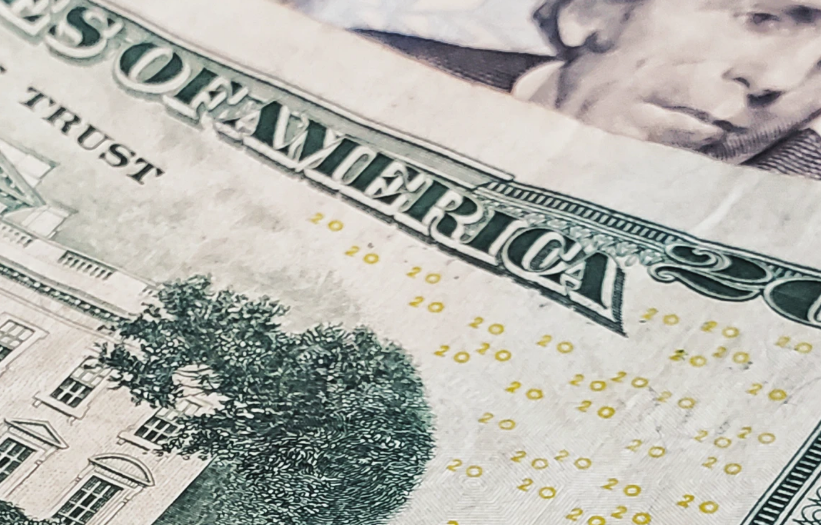
What is a Notice of Federal Tax Lien?
Federal tax liens represent the government’s legal claim over your property in the event of substantial and unpaid tax debt. A federal tax lien encompasses all of the assets, properties, businesses, and accounts under your name, as well as anything added into your ownership during the lien’s period.
In this article, we’re taking a close look at a common question we hear from people who have recently received a notice from the IRS … what is a notice of federal tax lien?
What is a Notice of Federal Tax Lien?
A lien is not a levy. As such, the IRS cannot outright claim your properties or accounts just yet. But it can issue a public Notice of Federal Tax Lien, alerting creditors to your new status, greatly impacting your credit score in the long-term, and heavily affecting your ability to seek financing.
Federal tax liens can be released under certain circumstances, and exceptions can be made for certain accounts and property to allow you to access refinancing options to pay your tax debt.
A calm and collected understanding of the situation can help you avoid accruing further tax debt and hefty penalties in the face of a federal tax lien. If you have received a Notice and Demand for Payment from the IRS, a lien may be their next step – contact a professional to seek individual assistance.
What is a Lien?
A federal tax lien allows the US government to lay legal claim on the equity of your assets, properties and accounts in the event of an unpaid tax bill.
Because this claim takes precedence over any other creditor, it effectively allows the US government to take away your ability to seek a secured loan, and similar types of financing.
This is different from a levy, wherein the government steps in to take over and sell any of your non-exempt property, or take a cut of every paycheck coming in, until your tax debt and penalties are paid off.
Instead, a lien is a promise that the government now has claim to the equity of what you own should you seek to sell any of it for liquidity. This effectively means that, should you sell your home, you must use the proceeds to first satisfy your tax debt. Liens can also become levies, given enough time has passed without any attempt at paying your debt.
You can assume that the IRS may turn towards a lien to coerce you to pay your tax debt when you receive a Notice and Demand for Payment. Herein, the IRS will detail what they find you owe them. Failure to respond will result in a Notice of Federal Tax Lien, which is a public notice rather than a letter you receive.
What Does a Notice of Federal Tax Lien Look Like?
The IRS will file a Notice of Federal Tax Lien through your local county or city hall. While the IRS does not directly notifies credit agencies, and these are no longer allowed to list tax liens on an individual’s credit report, the agencies respond to Notices of Federal Tax Lien anyway, as it usually signifies that the debtor is an unreliable person to lend to.
In other words, your credit report won’t indicate that you had a lien against your property by the federal government, but you will still have to deal with a substantial dip in score that will affect your ability to take out loans and seek financing for the next few years.
A Notice of Federal Tax Lien will usually include the document’s serial number, the name, and address of the taxpayer, the type of tax they owe, an identifying number, each owed tax’s date of assessment, and last day for rolling, and the total unpaid balance.
Do I Receive a Notice of Federal Tax Lien?
The IRS will not send you a copy of your Notice of Federal Tax Lien. Instead, it considers its first warning – the Notice and Demand of Payment – to serve as an indication that a taxpayer should expect a lien or other measures, if the tax debt is not paid, or if the taxpayer does not contact the IRS and sets up a payment plan.
Usually, the IRS will claim a federal tax lien on your property if you fail to pay or contact them within ten days after receiving their Notice and Demand of Payment.
What Should I Do About My Tax Lien?
The IRS can amend or release a tax lien under several different circumstances:
- It can subordinate specific property. Subordinated property is a property that the IRS still has a lien on, but they allow one specific lender’s claim to take precedence over their tax lien. This can help you negotiate refinancing with a specific lender.
- It can discharge the lien on a specific property. Where subordination lowers the priority of a lien on one property, a discharge selectively removes the property from a federal tax lien. The rest of your property is still under a lien, and you still owe the due balance, but you have greater options for refinancing.
- It can withdraw the lien completely. The IRS will only agree to withdraw its federal tax lien if you have paid off your tax debt entirely, or if you are currently in the process of paying off your tax debt and:
-
- Owe less than $25,000 (if you owed more, but paid off enough of your tax debt after receiving your lien to only have $25,000 remaining, you remain eligible for withdrawal)
- Can pay the full amount of your tax debt within 60 months
- Are in full compliance with filing and payment requirements/up-to-date on your taxes
- You have made at least three installment payments already
- It can release an erroneous lien. The IRS has mishandled tax lien notices in the past. A report from the Treasury Inspector General released in 2015 notes that the IRS mishandled 24,000 tax lien notices, wrought with a number of different issues, from lacking key information to being sent to the wrong address. Under specific circumstances, you may be able to get a lien released by working with a tax law professional and seeking an appeal as soon as possible.
Unless you have had the misfortune of being issued an erroneous tax lien – in which case, it is in your best interest to contact a tax professional immediately – your best option of seeking a withdrawal is by taking the proper steps to cover your debt with the IRS.
Conclusion
If this potentially involves seeking a partial or total discharge of your federal tax lien in order to secure the financing needed to cover your bill, you may contact the IRS with the necessary forms and paperwork to navigate refinancing. Refer to this video, and Publication 4235 for more information, or ask a tax professional for help.
